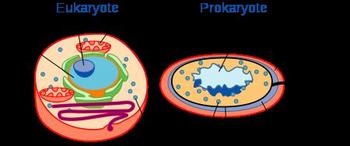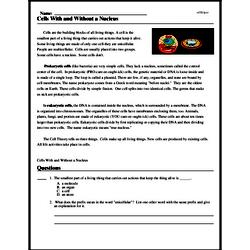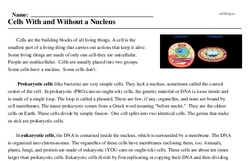Cells With and Without a Nucleus
Cells are the building blocks of all living things. A cell is the smallest part of a living thing that carries out actions that keep it alive. Some living things are made of only one cell-they are unicellular. People are multicellular. Cells are usually placed into two groups. Some cells have a nucleus. Some cells don't.
Prokaryotic cells (like bacteria) are very simple cells. They lack a nucleus, sometimes called the control center of the cell. In prokaryotic (PRO-care-ee-ought-ick) cells, the genetic material or DNA is loose inside and is made of a single loop. The loop is called a plasmid. There are few, if any, organelles, and none are bound by cell membranes. The name prokaryote comes from a Greek word meaning "before nuclei." They are the oldest cells on Earth. These cells divide by simple fission. One cell splits into two identical cells. The germs that make us sick are prokaryotic cells.




